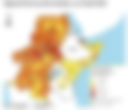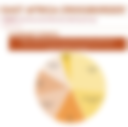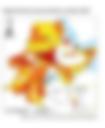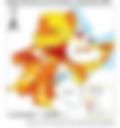Who are we?
The Food Security and Nutrition Working Group (FSNWG) is a regional platform, currently co-chaired by ICPAC and FAO. It’s goal is two-fold: to provide an up-to-date food security and nutrition situation analysis (early warning) and to offer a forum to build consensus on critical issues facing policy and interventions. The FNSWG has served regional governments, donors, and non-governmental agencies since the early 2000’s. Current membership includes approximately 80 organisations (IGAD, UN agencies, NGOs, donors, and research institutions) who contribute to the operation of the working group, and its nutrition, markets, food security information, livestock and pastoralist sub-groups.

Featured Updates

East Africa cross-border trade bulletin for January - March 2024
The Market Analysis Sub-group of the Food Security and Nutrition Working Group (FSNWG) monitors inf…

Food Security Statement: April 2024 update
- In April 2024, an estimated 74.9 million people in the region were highly food insecure and in urge…

Preventing the looming humanitarian catastrophe in Sudan as the lean season begins
Humanitarian needs in Sudan have reached new, alarming highs and are likely to escalate steeply dur…

East Africa cross-border trade bulletin for January 2024
The Market Analysis Sub-group of the Food Security and Nutrition Working Group (FSNWG) monitors inf…
Browse Updates
Filter by Update Type
Filter by Year
Filter by Month
Showing 63 results

Food Security Statement October 2021
- About 56 million people in 10 of the 13 countries covered by the FSNWG were highly food insecure (IPC2 Phase 3+) and in need of urgent assistance in October 2021. Of these, about 27 million …

Food Security Alert October 2021
Two consecutive poor rainy seasons in parts of the East Africa region, particularly, eastern Kenya, southern Somalia, and certain Belg-receiving areas of Ethiopia have resulted in below-average crop production, poor rangeland conditions, and rising cereal …

2021 IGAD Regional Report on Food Crises
We are pleased to share with you the 2021 IGAD Regional Report on Food Crises. The report is a by-product of the annual Global Report on Food Crises (GRFC 2021), which is facilitated by …

Food Security Statement, September 2021
- Approximately 59 million people in 10 of the 13 countries covered by the FSNWG were highly food insecure (IPC2 Phase 3+) and in need of urgent assistance in September 2021. Of these, about 29 million …

Food Security Statement July 2021
- Approximately 60 million people in 10 of the 13 countries covered by the FSNWG were highly food insecure (IPC2 Phase 3+) and in need of urgent assistance in July 2021. Of these, about 29 million …

FSNWG Climate Alert May 2021
The March-May 2021 rainy season saw a late start in many areas, with drier than usual conditions recorded across south-eastern, eastern, and northern regions of Kenya, north-western Uganda, southern South Sudan, north-central and central Ethiopia, …
